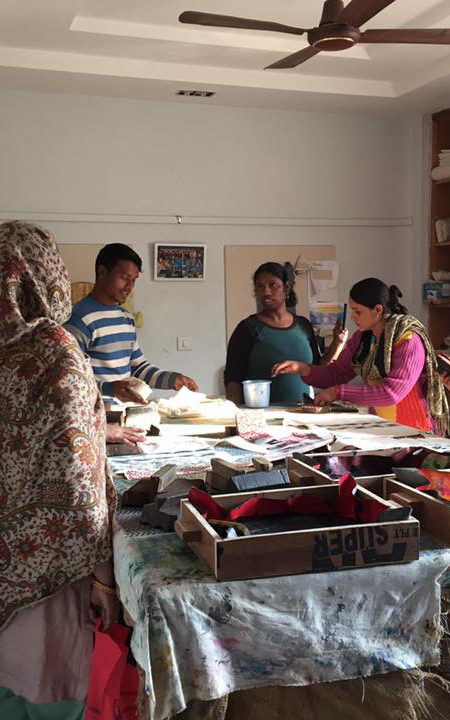
I really enjoy designing and making things. When I look back and think about the most formative times growing up, I remember particular moments. When I was 5 years old, my dad got me a toolbox with a real hammer and saw! I believe this was a key moment in making me an engineer; perhaps even more significant than my 4 years spent at University studying Engineering Science.
The reason for this is that the tools had a deeper purpose. The gift of the toolbox was essentially a commissioning. When dad gave me the toolbox, he was also saying that he entrusted me with the tools and also believed that I could use them creatively. In some ways, we can see a parallel with God entrusting mankind with the stewardship of the earth. We are entrusted to use the earth’s resources wisely and creatively.
Thirty years after receiving that toolbox, I am still designing and making things with the tools I have, yet in rather different settings of industry and humanitarian work. In this context, I will share a little from the perspective of a Christian engineer. I hope you will be encouraged to think how your work and discipleship can go hand in hand.
Fulfilling the Great Commission
The reformer Martin Luther reaffirmed the biblical idea of the priesthood of all believers. God has placed each of us with unique opportunities in the workplace, homes and schools. Some of us may find ourselves as being the only Jesus followers in our workplace. This is a wonderful opportunity as well as a serious responsibility.
There is a strategic importance to ‘tentmaking’ in the work of sharing the gospel and discipleship. A chaiwala meets many people each day – imagine the potential for sharing the light and love of Christ through those interactions! A factory worker spends many hours working alongside fellow workers – the believer in that setting is the best person to witness to his colleagues who may never consider stepping foot inside a Church.
My work in engineering has opened up doors for me to work in many places around the world. It has also opened up opportunities to witness among my colleagues in the design and construction industry. I strongly believe that business is of strategic importance to open up doors to unreached areas.
Following the apostle Paul’s example and also the example of many missions throughout history (monasteries, William Carey, Moravians, etc.), work created an opportunity for witness and it allowed Christians to provide income for themselves. The businesses often formed the heart of communities and villages/towns. Society as a whole benefitted and thus there was a platform for the gospel message. There is an open invitation and a natural credibility bestowed upon a business that generates wealth, benefitting all employees and their families.
Working shoulder to shoulder with unreached peoples allows high levels of trust and strong relationships to be formed. This promotes a greater understanding of cultures for both the local and the foreigner. It is an opportunity to model a godly work ethic and Christ-centred lifestyle. By choosing to work at the heart of community development initiatives, the business identifies with the needs and challenges faced by society.
Fulfilling the Cultural/Creation Mandate
In my work, I promote the celebration and affirmation of cultural expression in architecture and technology. This is in light of the biblical perspective on culture that God created and affirms the diversity and beauty of cultural expressions; also that we look forward to a new creation where every people group will worship God.
We are made in the creator God’s image. He made us creative and at the beginning commanded mankind to fill and subdue the earth and to care for it. We are to use our collective knowledge and creative talents to manage and develop the earth. The command is not to destroy the earth but to wisely steward it; not just to conserve but to actively promote environmental enhancement.
I want to harness existing creativity and use modern technology to develop innovative approaches in construction. The use of appropriate technology, consideration of sustainability, ecological awareness and the ability to work with (not against) the natural environment are all important values.
Fulfilling the Greatest Commandment
Following the greatest commandment leads to a radically different way of living. Paul gives instructions to slaves and masters (Ephesians 6:5–9), which are relevant to today’s employer/employee relationships. Notice that the end result of this radical living out of the gospel is that individuals are pointed towards Christ and God is glorified.
In the building industry, I feel it is important to incorporate traditional knowledge, vernacular architecture and indigenous art into the design and build practice. By valuing the artisan and craftsman as essential to the building process, the business will model Christ’s love by showing value to each individual.
Beyond the individual, I believe that as we co-work with Christ we will also aid justice and the betterment of society. A strong theme in Scripture is that of restoration. Peter reminds us of the hope for the restoration of all things given by the prophets (Acts 3:21). In my training as an engineer, I was taught to consider the environmental and social impacts of technology and industry. Engineers have big potential to either cause damage or bring about restoration. May my heart be aligned with Jesus whose Kingdom is good news to the poor and freedom for prisoners and the oppressed (Luke 4:18–19).
In my work, I am involved in a small way in community development and humanitarian efforts among some of the most vulnerable and poor in our world. It breaks my heart that collectively, mankind has allowed these injustices to happen, but I also remember that one day the risen Jesus will return to establish the new creation.
Contributed by David
David is an engineer from England. With God’s help, he is keen to make positive change through his work to impact individuals, society and the environment.
